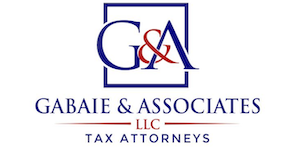In response to the coronavirus or COVID-19, the IRS will defer 2020 tax payments by 90 days. This will likely come as welcome relief for the many taxpayers stressing about the financial implications of the coronavirus pandemic. However, many taxpayers who are expecting a refund may still want to file their taxes on time to get their money sooner.
Tax Payment Deadline Extended for 90 Days
In a press conference, Treasury Secretary Steven Mnuchin announced taxpayers will get a 90-day extension to pay their taxes. The 90-day extension will be a penalty-free period where taxpayers should not be assessed late filing penalties, interest, or underpayment penalties until after the extension period, or until July 15, 2020.
According to Mnuchin, “if you owe a payment to the IRS, you can defer up to $1 million as an individual.” Businesses will be able to defer up to $10 million in payments. There is no additional form or paperwork to fill out to defer payment. Taxpayers will “automatically not get charged interest and penalties.”
The extension was expected after President Trump announced the Administration would instruct the IRS to extend the tax filing deadline for individuals and businesses on March 11. However, the specifics of the extension did not come until March 17, 2020.
Taxpayers who are expecting a refund have no reason to wait to file their taxes. The IRS has been accepting tax returns since January 27, 2020. The sooner you file your tax return, the quicker you can expect a refund payment. E-filing is generally a faster way to file and if you request direct deposit, double-check your routing and account numbers.
If you will not be able to file by April 15th, whether you expect to owe money or are due a refund, you can file an extension. Filing for an extension will delay the deadline to file until October 15, 2020. However, an extension does not extend the payment deadline. If a taxpayer owes taxes and files an extension, the taxpayer may still be assessed interest and penalties from July 15, 2020 until their taxes are paid.
Maryland Business Tax Extensions
Businesses in Maryland also have the benefit of an extended filing deadline until June 1, 2020. To address the economic impact of COVID-19, Maryland Comptroller Peter Franchot extended certain business tax returns until June 1st, including:
- Sales and use tax,
- Withholding tax,
- Admissions & amusement tax,
- Alcohol, tobacco, and motor fuel excise tax,
- Tire recycling fees, and
- Bay restoration fees.
The extension applies to businesses with return due dates during the months of March, April, and May 2020. The Comptroller of Maryland has set up a dedicated email address to help answer extension-related questions for Maryland businesses, at [email protected].
Reliable Tax Attorney Helping Solve IRS Problems
An extension to pay taxes can be very helpful for businesses and families facing economic challenges. However, even with a deferral, you may need help challenging assessments, reducing penalties, or negotiating an offer in compromise. Talk to an experienced Maryland tax attorney for help. Contact Gabaie & Associates, LLC for a free consultation on your state or federal tax issue at (410) 862-2198.

